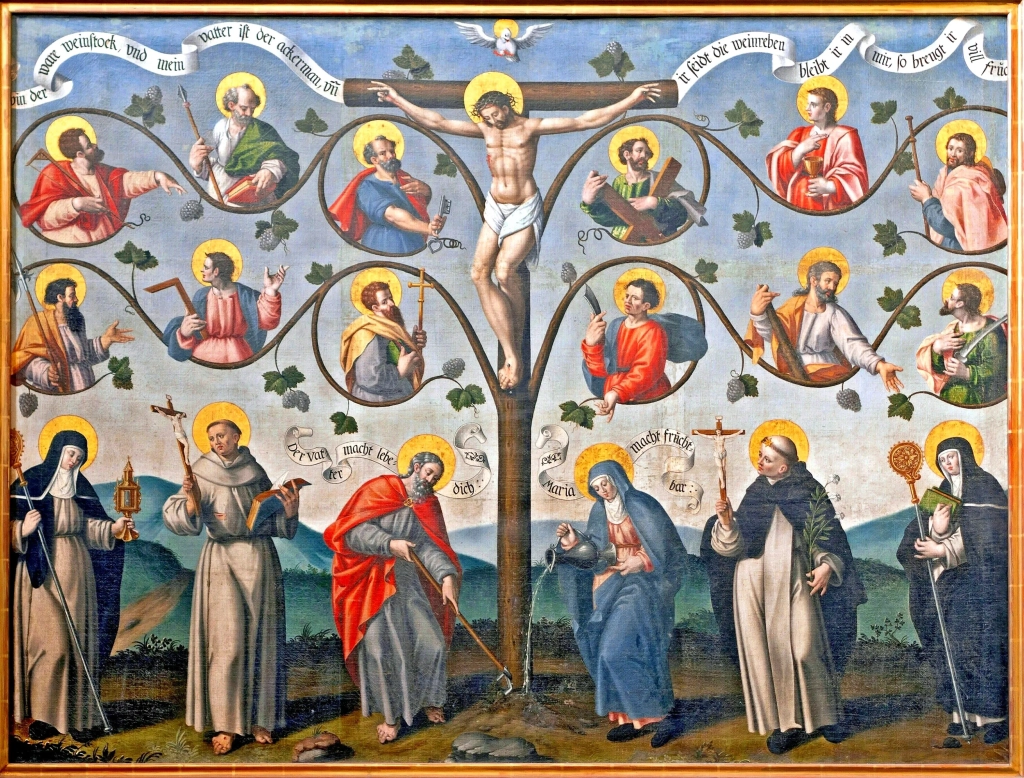Jijo Kandamkulathy, CMF
Claretian Publications, Macau
Jn 12:20-33
5TH SUNDAY OF LENT – YEAR B
Jesus is in Jerusalem for the final time before the crucifixion. After the royal entry of Jesus, the leaders of Jerusalem are already plotting to suppress this possible Galilean uprising to keep the powers in balance and prevent a complete takeover by the Romans.
On his way to Jerusalem, Jesus had gone to the house of Lazarus where we find Judas, openly disagreeing with him about the perfume and arguing in the pretext of caring for the poor. The backdrop was getting fully set since then, and the characters in the final act of glorification were starting to take their roles.
In the Gospel passage today, we find the Greeks approaching Jesus through two apostles who, interestingly, bear Greek names. In this apparently insignificant visit of the Greeks, Jesus sees the future of his community unfolding. In their arrival, Jesus reads that the hour of his final act of redemption is set in motion. He realizes that he is no more just a Galilean leader; he is now in Jerusalem and the people who are coming in search of him are Greeks. The Greeks represent the non-Jewish people who will enter the community of his followers later. A border has been crossed; a boundary has been breached. He was going “global.” Then the voice comes from heaven, “I have glorified it, and will glorify it again.” Jesus tells the Greeks; this voice came for their sake to confirm them that they had met the true God in their pilgrimage for the Passover Feast.
One of the “troubles,” rather an agony, that Jesus has is about the “glorification on the cross.” He is tempted to run away from it. He is debating aloud almost whether he would take up this pain on the cross or not. Then he resolves in public that he would go through the glorification process on the cross as he understands that his mission is tied up with that process. Then he makes his final prediction of the impending crucifixion. He compares that sacrifice to the fruitfulness of a grain of wheat that decays to give life to many grains. Unless he willingly offers himself to the decaying process (the torture and death), there will be no spiritual fruits. A whole spiritual edifice of redemptive suffering would be built on this foundational thought. Sufferings and pains can be made salvific!
One of the questions that would take us deep in thought is: Was the crucifixion an avoidable one? Did Jesus choose it, or was it a verdict by chance, or was it forced upon him? This gospel tells us very clearly that crucifixion was a choice taken by Jesus, and even Pilate was just playing a part in executing the choices made by God. It was the choice of Christ the King. The king decides. The earthly governors just execute! If that choice was not made by Jesus, then, the crucifixion of Jesus would have been like the ones of the two thieves on either side of Jesus. Crucifixion was a punishment given to them by the governor. In contrast, that voluntary decision made by Jesus to undertake the suffering is what made it salvific. For suffering to become salvific, it must be voluntary and for love!
A meditation on how Jesus lived courageously the values he preached and taught would greatly facilitate our Christian resolves. He decides it is worth dying for those values. His example would be emulated by many martyrs later, joyfully walking into death for the gospel values that they believed and lived. Jesus teaches us to spend our life not for what is worth living for but for what is worth dying for.


 Follow
Follow


